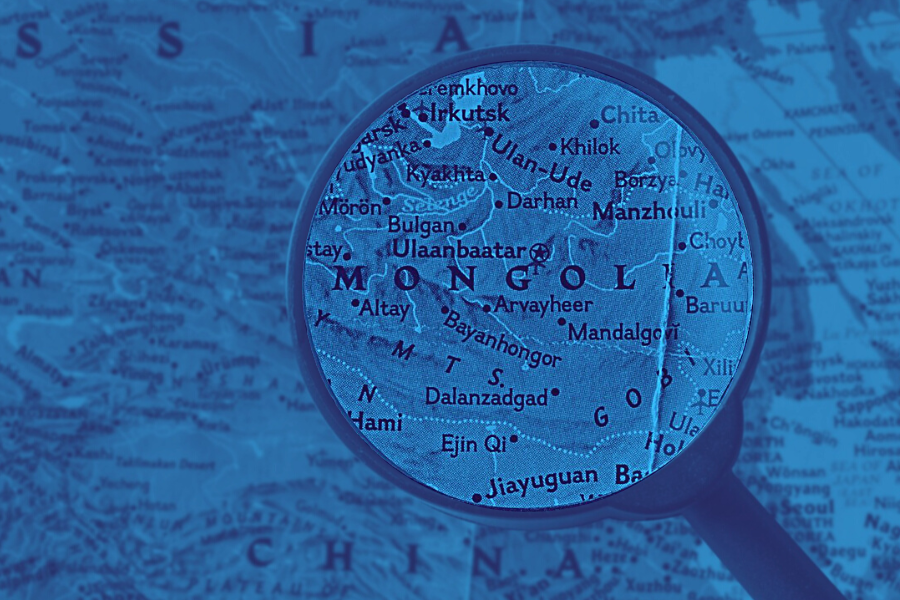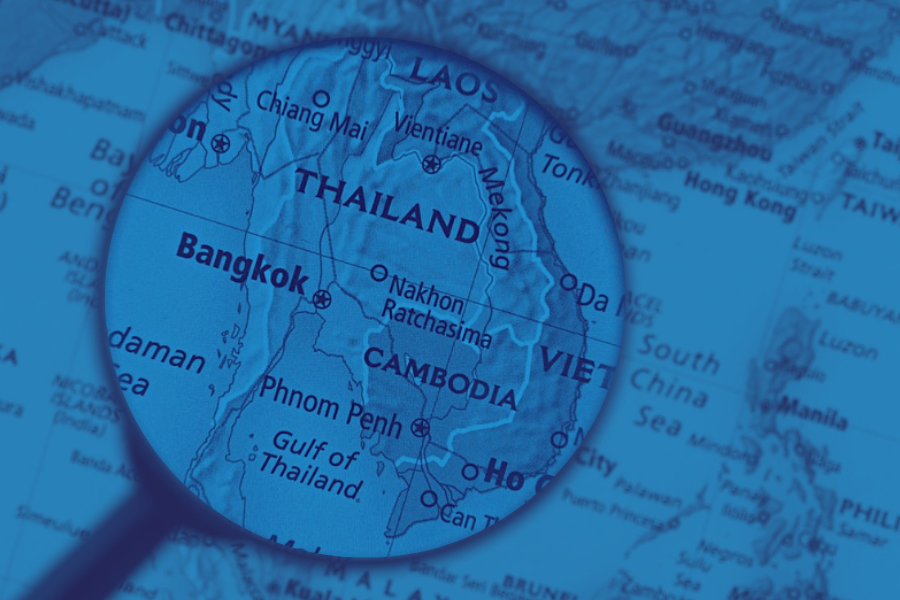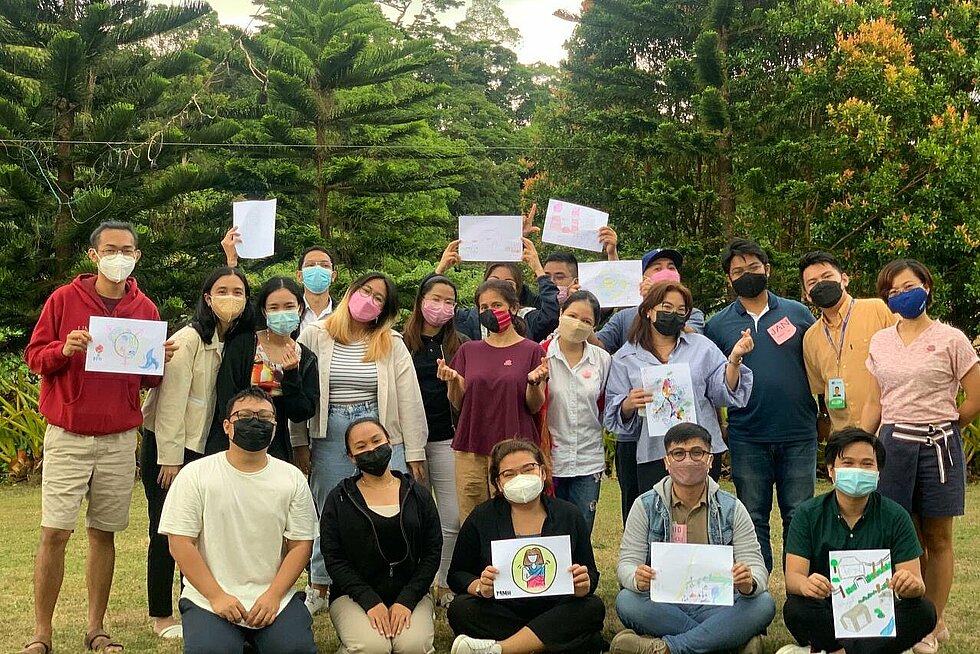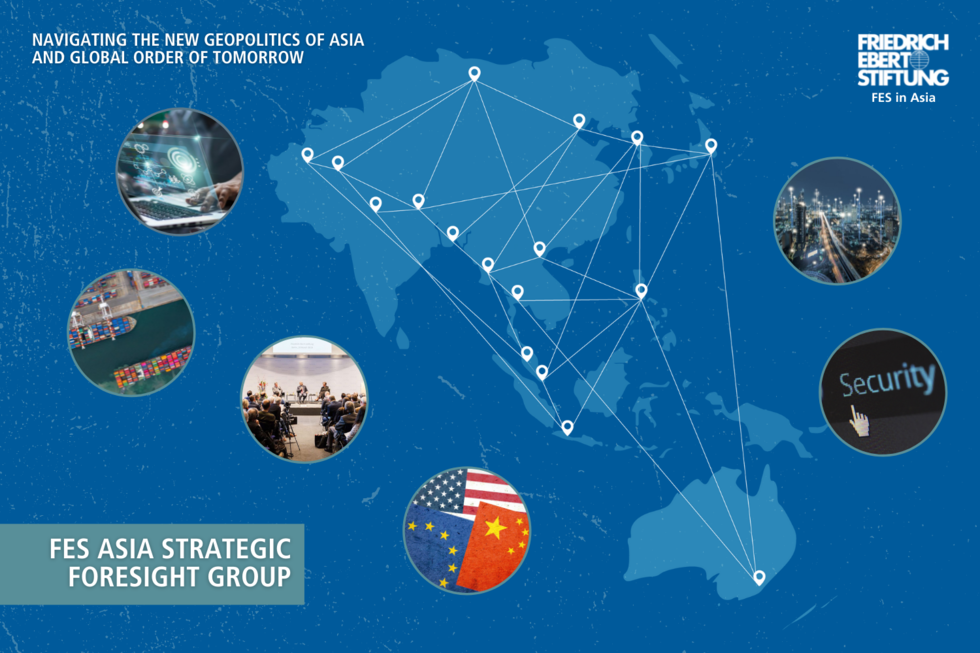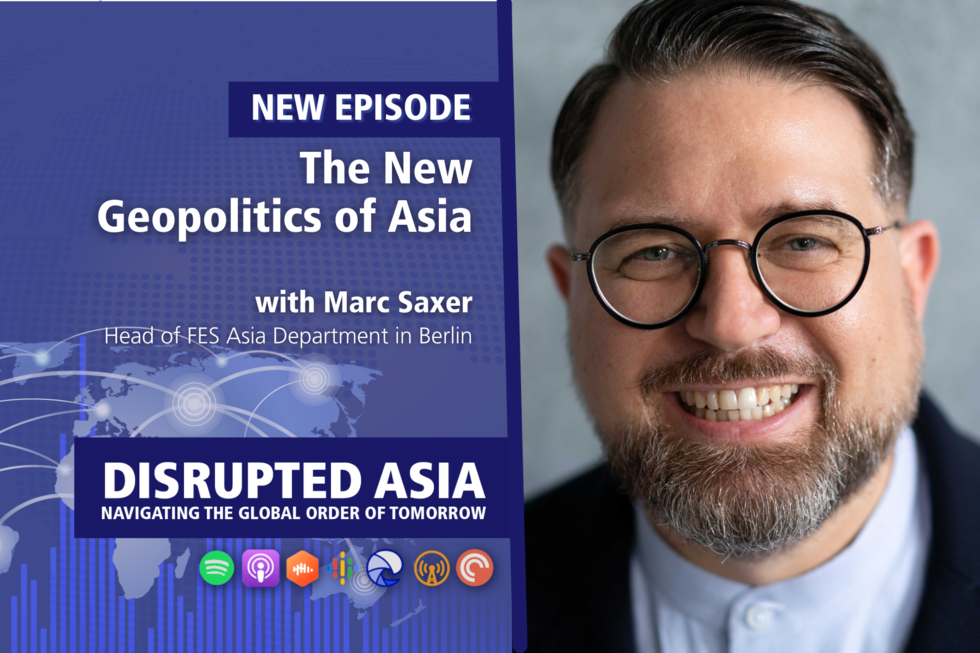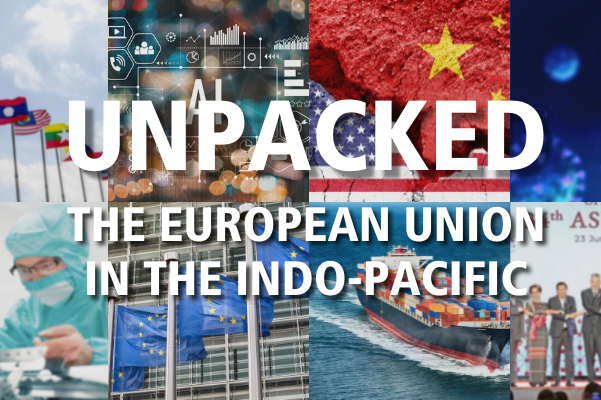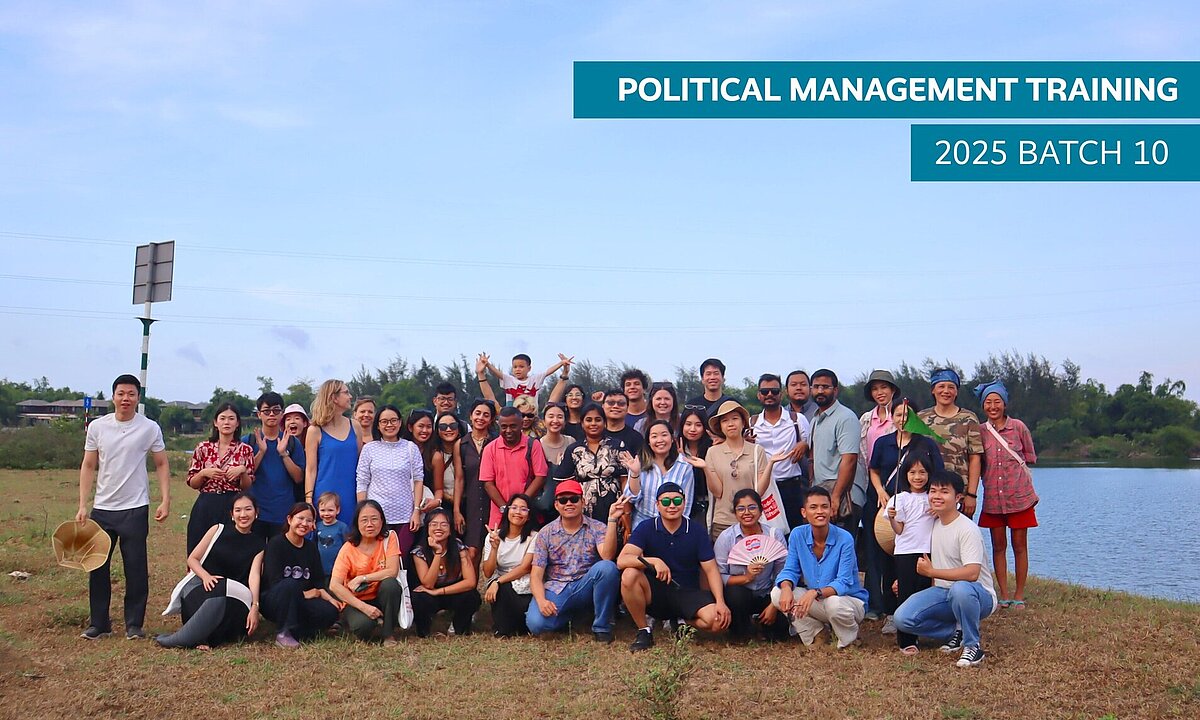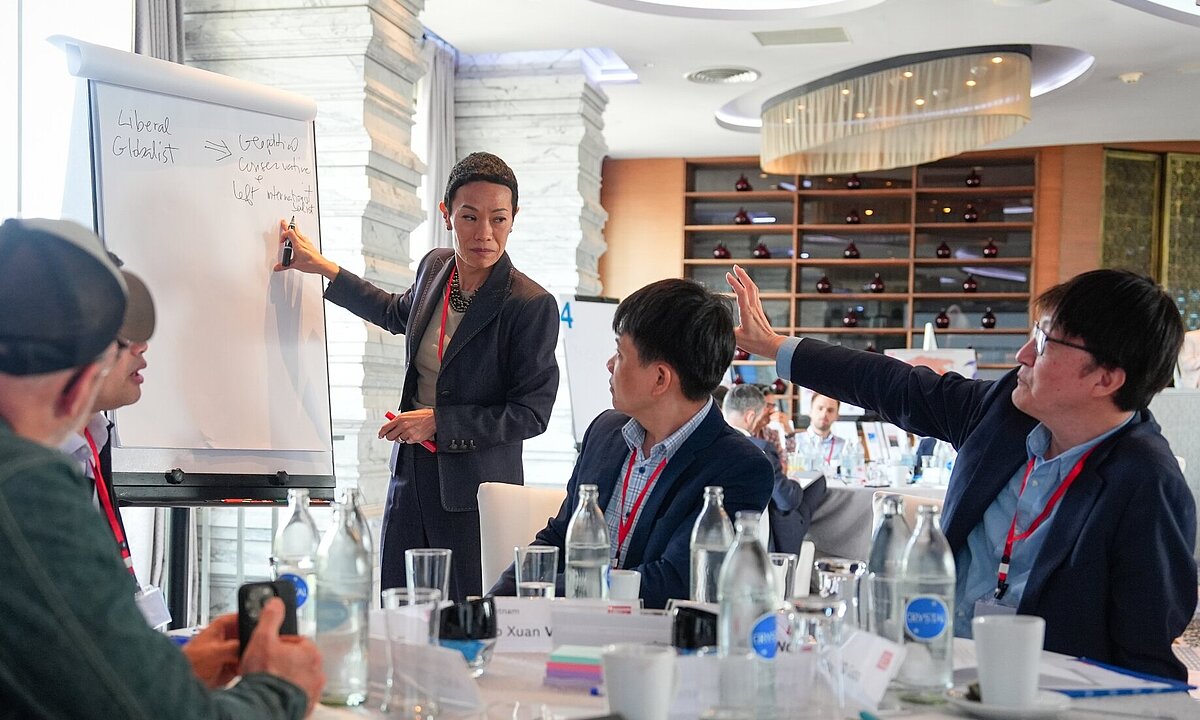The Philippines in the New Geopolitics of Asia
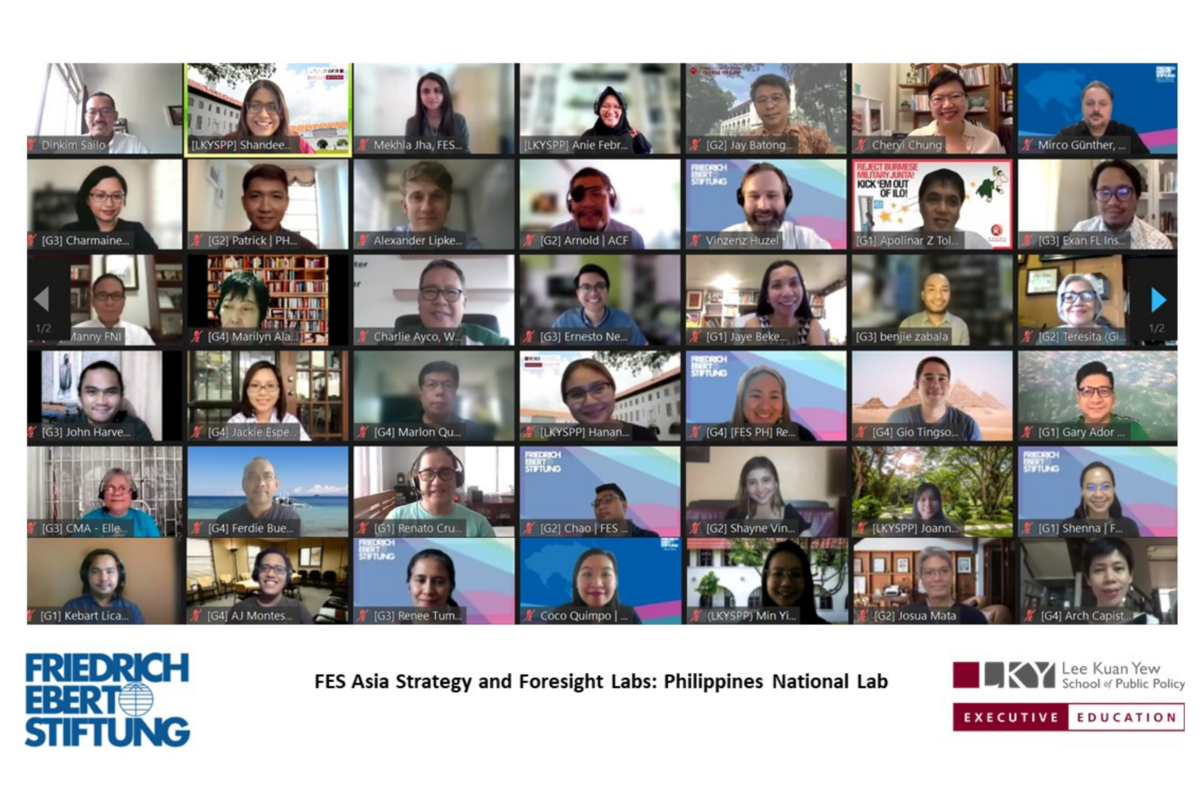
The archipelagic nation finds itself at the forefront of many key dynamics that will shape the future of the Asia-Pacific region in the 21st century. It is caught up in the intensifying great power competition between the United States and China, with the U.S. as its most important security partner and China as a top trading partner. The Philippines play a central role in ASEAN security affairs and are a key stakeholder in the South China Sea conflict. Its economic geography puts the country in the spotlight of the changing geoeconomics of trade, supply chains and shipping routes. Regional and global mega trends such as automation and digitalization, climate change, migration and the systemic implications of the COVID-19 crisis have an equally significant bearing on the Philippines’ national development path and require innovative policy solutions.
Against this challenging backdrop, FES convened a diverse group of policymakers, civil society representatives, trade unionists, academics and retired diplomatic and military personnel for a two-day workshop as part of the new FES Asia Strategy & Foresight Lab Series. Faciliated by the Lee Kuan Yew School of Public Policy Executive Education program, experts discussed the challenges facing their country in the midst of a changing regional order and put forward a set of recommendations that will help the Philippines successfully navigate the geopolitical seas around them.
Current state of play
The lab started off with an assessment of the current geopolitical realities and policy challenges the Philippines are facing. The crisis of multilateralism and a fragile regional order, questions around the post-pandemic recovery and vaccine diplomacy, and concerns over China’s rise as well as uncertainty when it comes to the future role of the United States in the region featured prominently in the discussion.
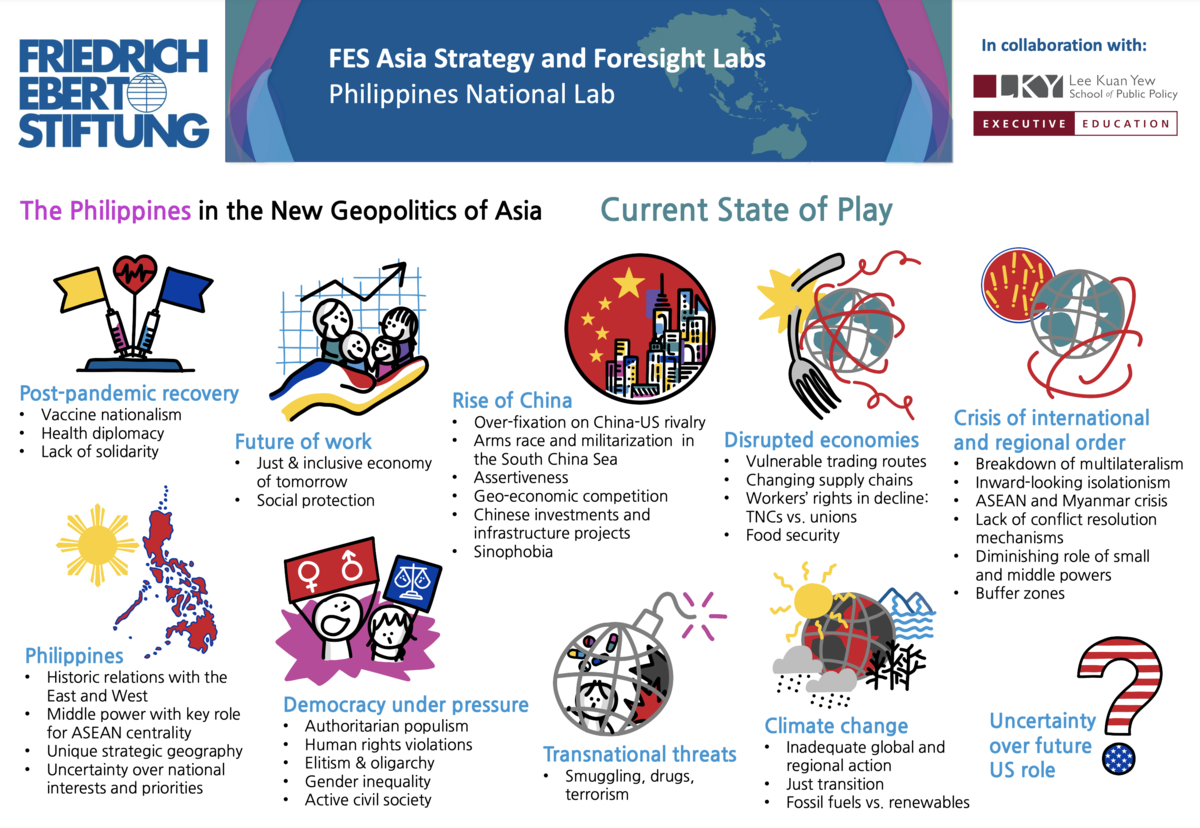
Emerging trends
With key current issues facing the Philippines mapped as a first step, an exercise in futures thinking was conducted to discuss emerging long-term trends and to assess their likelihood and potential impact. In addition to the great power rivalry and seemingly accelerating arms race in the region, several driving forces were identified that are likely to have an impact on the country’s future trajectory: the rapid automation of conventional manufacturing and slowly eroding comparative advantage of cheap labour; a regional economy that is increasingly organized in competing trade blocs; the social-ecological transformation of mega cities such as Manila and a widening urban-rural divide; demographic and technological changes; as well as rising social inequality and declining workers’ rights.
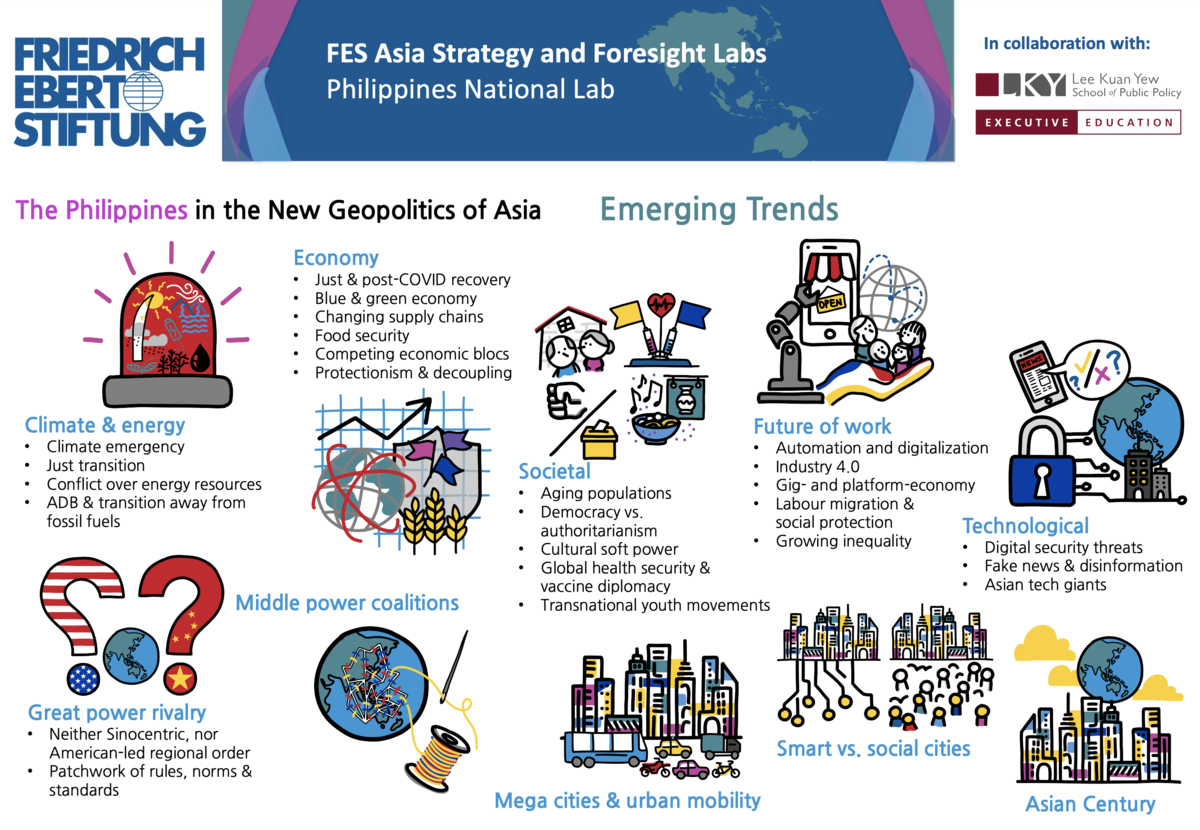
Strategy for the future: An international, outward-looking Philippines
In the concluding session, participants collectively came up with strategic options and policy recommendations to help the Philippines come out on top of the key trends transforming the region. One important pillar concerned the effective management of the Philippines’ difficult external environment, maintaining a neutral stance and proactively widening foreign policy options by engaging with like-minded smaller and middle powers in the region in order to leverage the country’s unique strategic geography. Other core pillars revolved around future-proofing the economy, upholding international norms and rules, and devising tailored industrial policies while simultaneously promoting regional connectivity. Foreign policy success – all stakeholders agreed – lastly also requires equitable and inclusive development opportunities for all, in the context of a stable domestic framework that upholds democracy and good governance. Building broad societal alliances and formulating a common, positive narrative for the future will be decisive to help the Philippines grow further: at home, as a regional and as a global player.
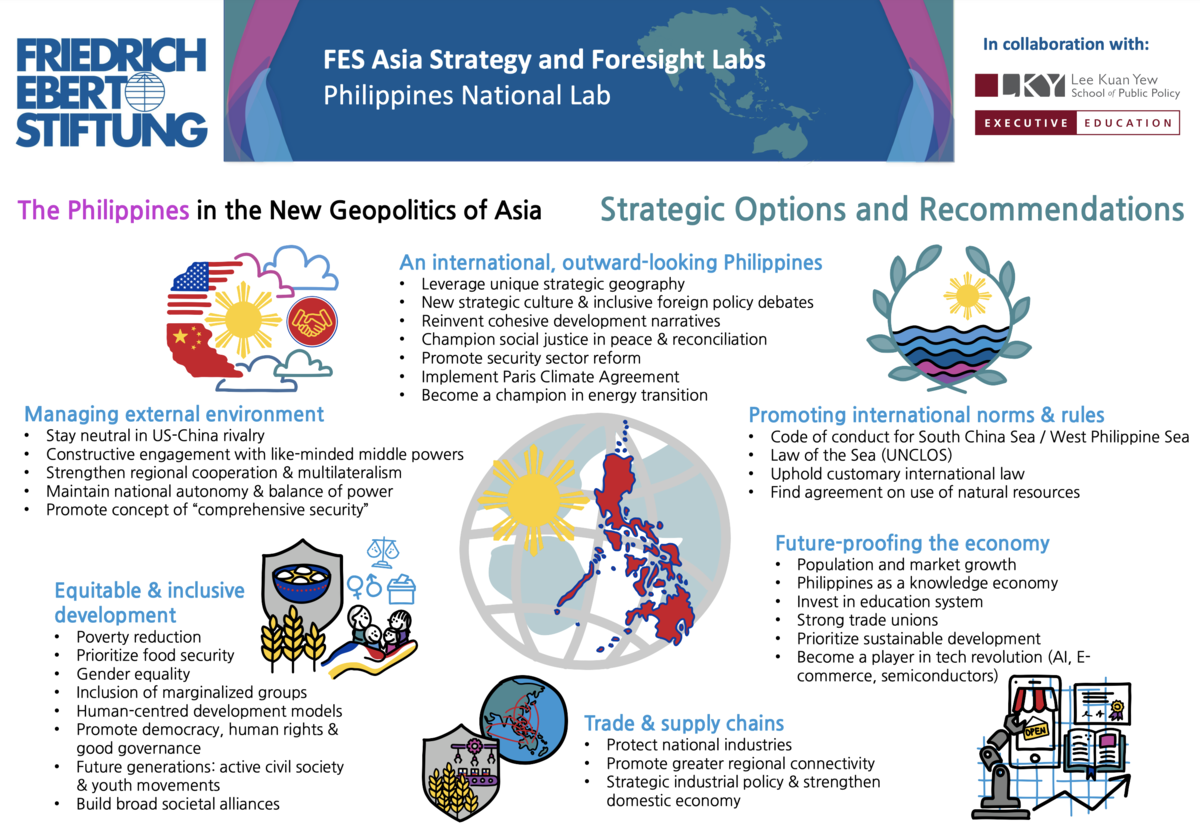
Event summary compiled by Alexander Lipke, Research Associate, FES Office for Regional Cooperation in Asia.
Friedrich-Ebert-Stiftung Asia
Bringing together the work of our offices in the region, we provide you with the latest news on current debates, insightful research and innovative visual outputs on geopolitics, climate and energy, gender justice, trade unions and social-ecological transformation.

